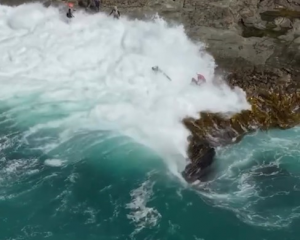
Preliminary findings from a 12-month study of the river and its water quality reveal sheep and dairy farms may both be contributing to the problem.
The investigation into stream-water quality is being carried out by ORC scientists, to determine the effects of intensive farming on water quality throughout the catchment.
In a statement last week, the council said South and West Otago farmers had been laying tile drains to reduce soil wetness and allow more intensive stock grazing and conversion to dairy farms.
Some water quality indicators in the Pomahaka catchment had been deteriorating and ORC would use the results of the research to form future regulatory approaches that might be needed to stop any further decline.
The investigation will determine seasonal water quality patterns, track changes in water quality, monitor effects on water quality from tile drains located in both intensive and non-intensive land use units within the catchment and provide information to inform decisions of policy addressing the failing quality of water in the Pomahaka catchment.
Preliminary results include. -Tile drains on dairy farms transport higher concentrations of nutrients and bacteria than those from sheep grazing.
Water quality is poor in both dairy and sheep tile drain areas.
There is evidence that other sources of surface water contamination in the Pomahaka River may include the lack of fences to keep stock out of waterways, especially in areas of low-intensity sheep, beef and deer grazing.
Because these are the dominant land use types in the area, this possible component of the water quality problem may also be a main contributor to the low water quality of the Pomahaka River.
ORC director of environmental information and science, Dr John Threlfall said these early results supported the idea that tile drains were not necessarily the primary cause of the poor water quality, but rather the on-farm practices occurring on tile-drained lands.
Cr Gretchen Robertson, chairwoman of the environmental science committee said the ORC maintained a substantial programme of monitoring water quality throughout Otago which provided the basis for a review of rules in the Regional Water Plan.
She said the ORC was aware of the rapid changes in farming that had taken place in many parts of Otago in recent years and was working on a number of fronts to improve the regulatory frameworks governing water quality and water quality issues.
The council was keen to see that Otago farmers, especially those keeping up to date with environmentally sound practices, could continue to develop dynamic and productive farming operations.
But it was also aware the wider community wanted assurance that those farmers not implementing low-impact farming practices knew quite clearly that a decline in water quality caused by their methods would not be tolerated, Cr Robertson said.














